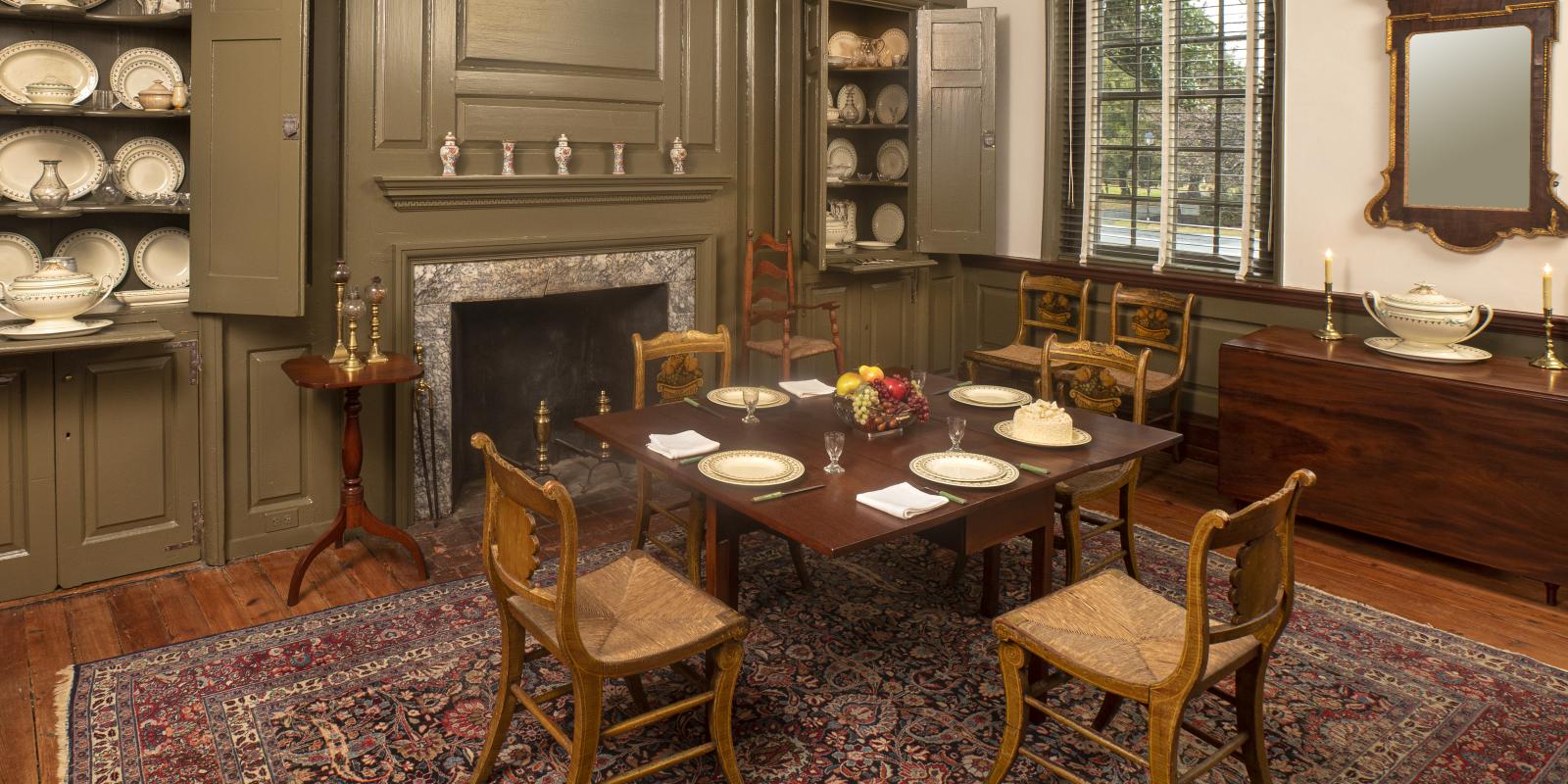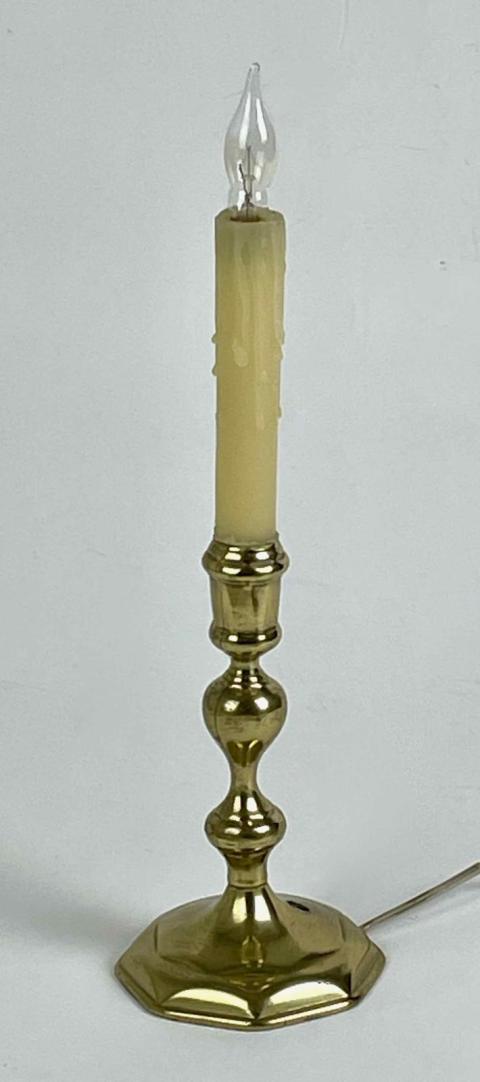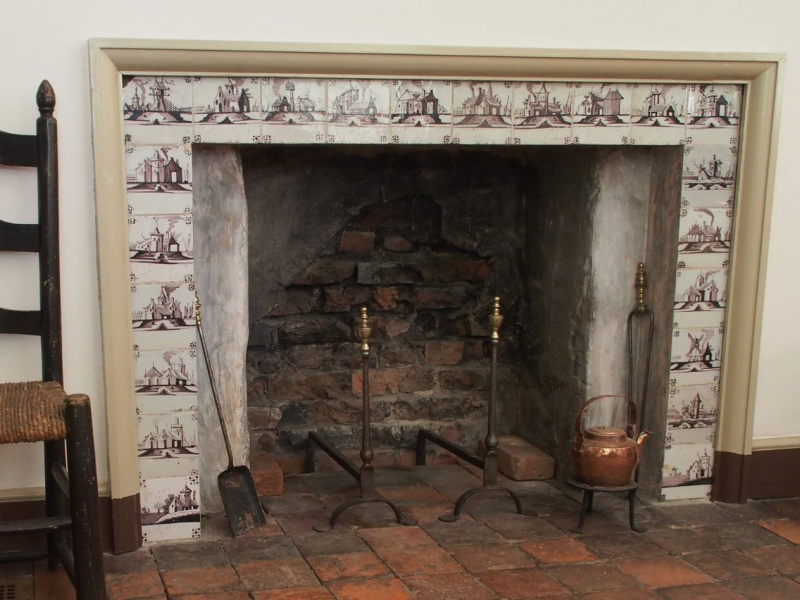
1774 Colonial Fireplace
A colonial fireplace located in the housekeepers room in Corbit-Sharp House (c. 1774) features Delft tiles. The purple color is a bit more unusual in Delft tiles which are more commonly seen in blue. This Philadelphia-Georgian style is featured prominently throughout the Corbit-Sharp house.
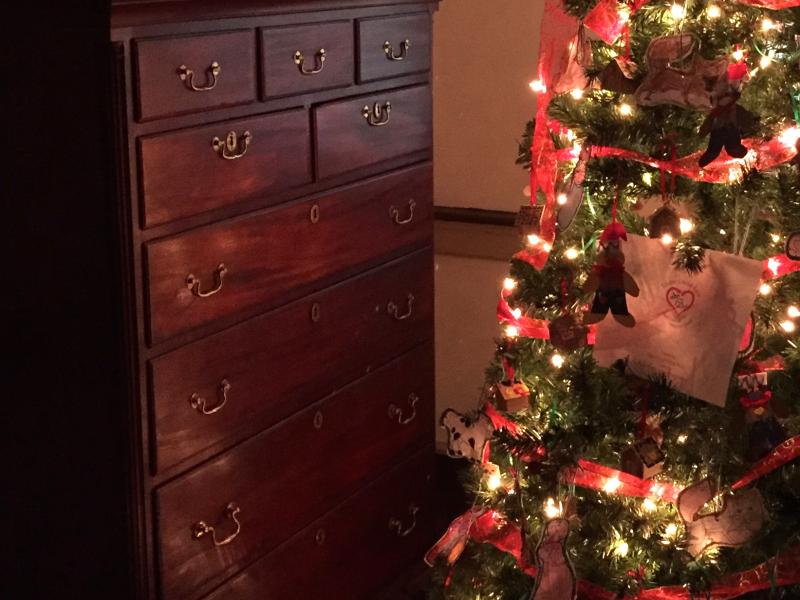
Original Furnishings
Because the Corbit-Sharp house remained in the Corbit family until the mid-20th century, we know an exceptional amount about the home's history and furnishings. Many pieces on display are original to the house, including this chest of drawers in the guest bedroom.
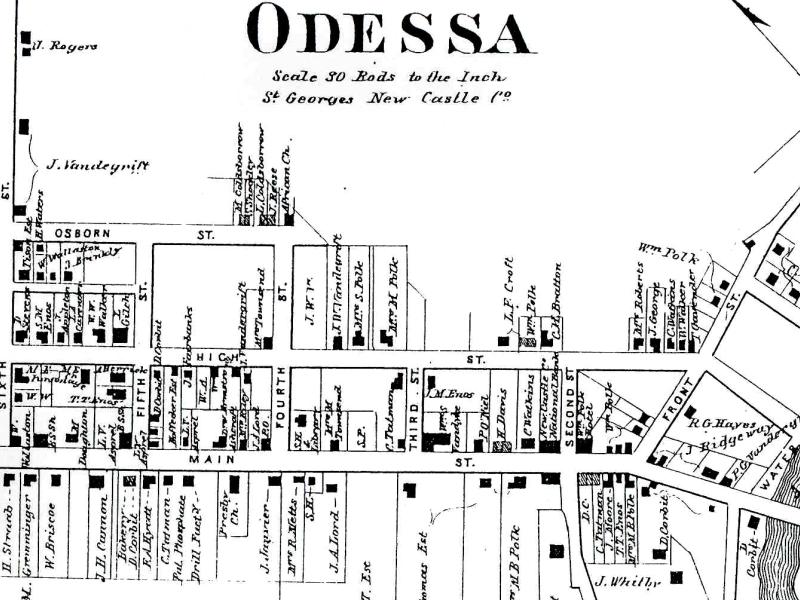
Pomeroy and Beers atlas c.1868
The firm of Pomeroy and Beers produced an atlas in 1868 called the Atlas of the State of Delaware. It was the first atlas ever published of the State of Delaware. The multi-page atlas included counties, major towns and cities including Odessa, DE.
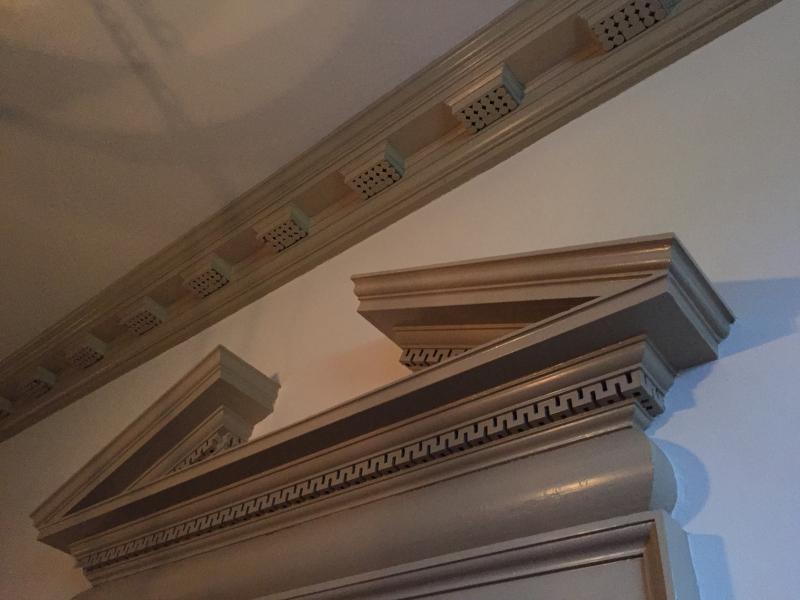
Cornice with Mutule Blocks
The interior cornice in the Corbit-Sharp House with mutule blocks is a Georgian feature borrowed from Greek Doric architecture. Mutule blocks can also be seen in Philadelphia’s Independence Hall.
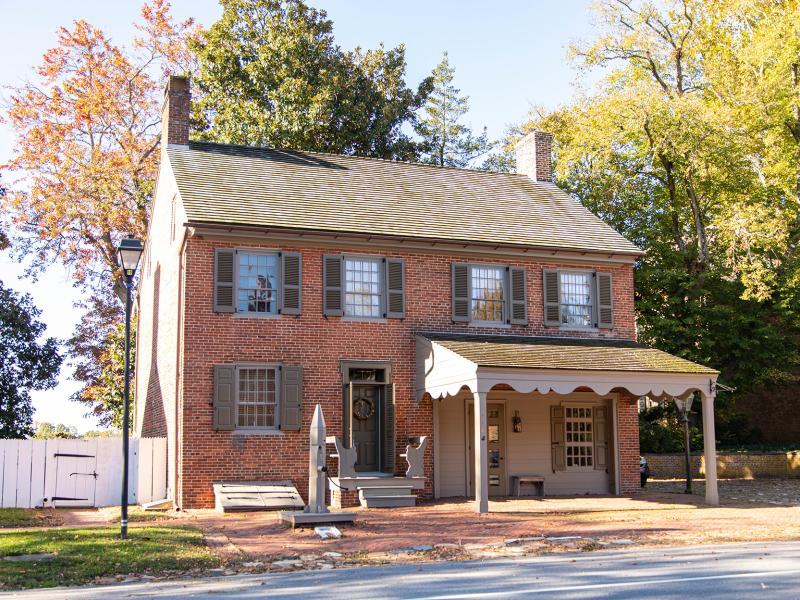
Wood Pump c.1780
The wood water pump in front of the Historic Pump House c.1780 is indicative of the public nature of the center of town. The pump was a necessity for thirsty travelers who otherwise would have had to beg a drink from a resident or purchase it at a livery stable or tavern.
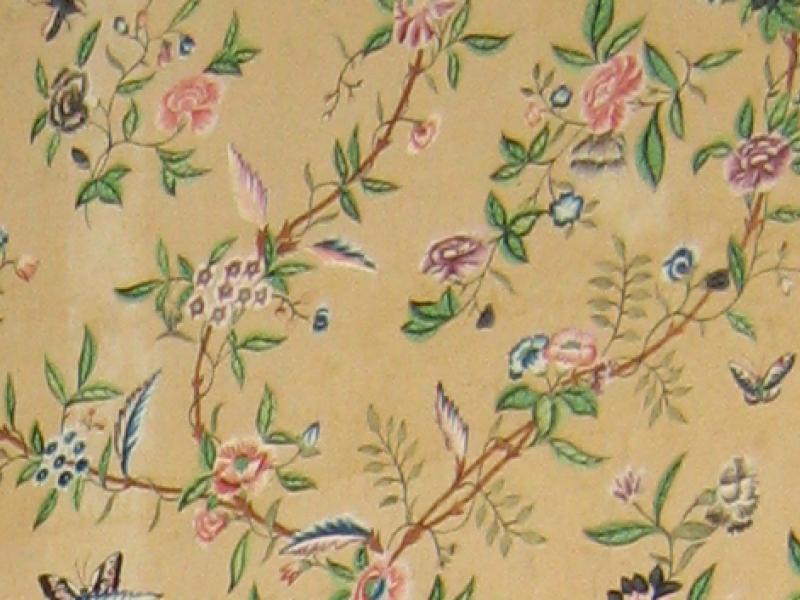
Hand Painted Wallpaper
The wallpaper in the Corbit-Sharp House (c. 1774) is a rare example of hand-painted Chinese wallpaper. This kind of unique export product was made in the 18th century and helped establish the popularity of wallpaper in England and America.
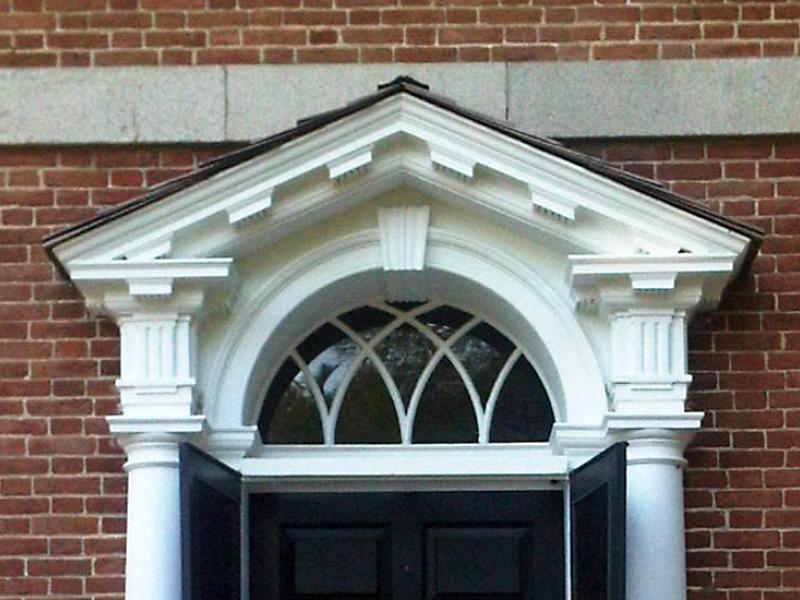
Entrance Door Corbit-Sharp House
Georgian houses displayed a strict symmetry with a paneled door as a centerpiece capped by an elaborate crown or pediment. The decorative crown (entablature) and fanlight transom window are indications of the Corbit's wealth.
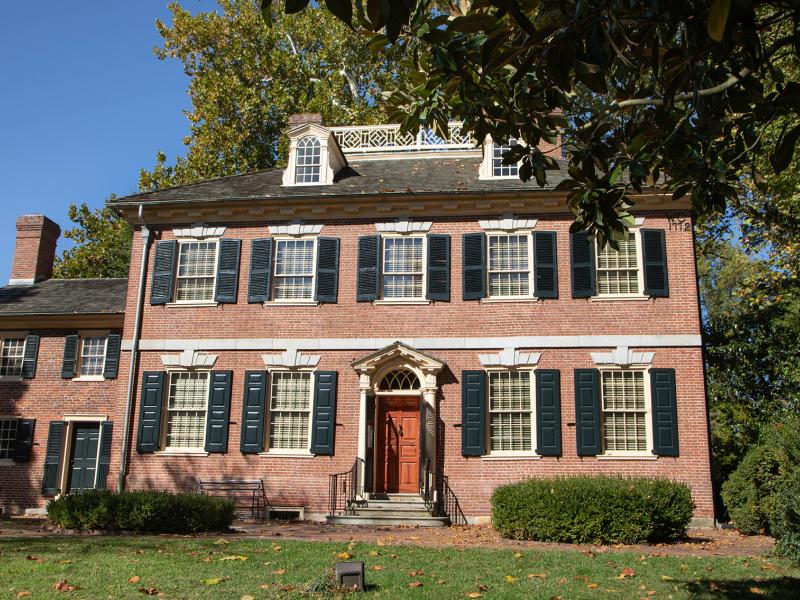
Sanctuary for Sam
In 1845, a fugitive slave from Maryland named Sam approached the Corbit home begging for refuge. Sam was hidden by Mary Corbit behind a tiny door in the attic of what is now referenced as the Corbit-Sharp house. There, the runaway was given food and a warm quilt.
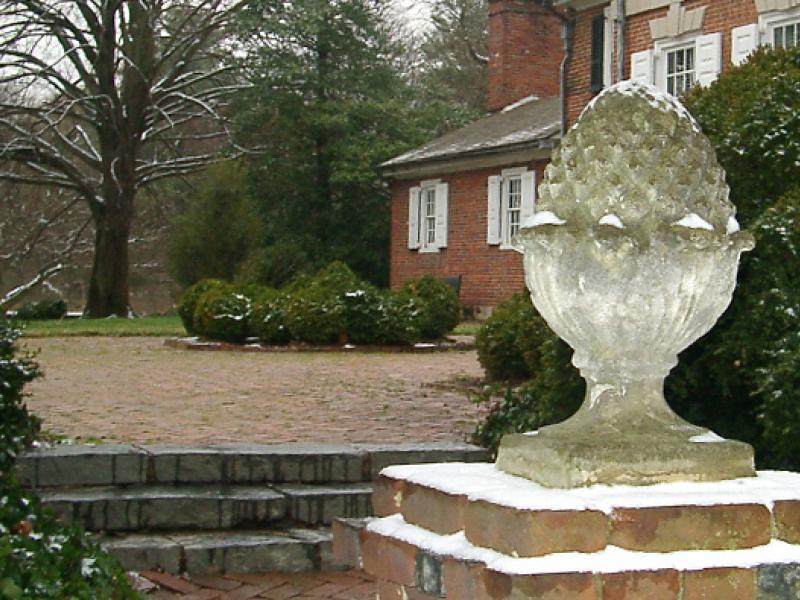
Pineapple Gate Post Caps
Colonial Revival style garden pineapple gate ornament at the entry of the Corbit-Sharp House. The pineapple is historically the symbol of hospitality. It became a highly popular finial design in the eighteenth and nineteenth centuries.
